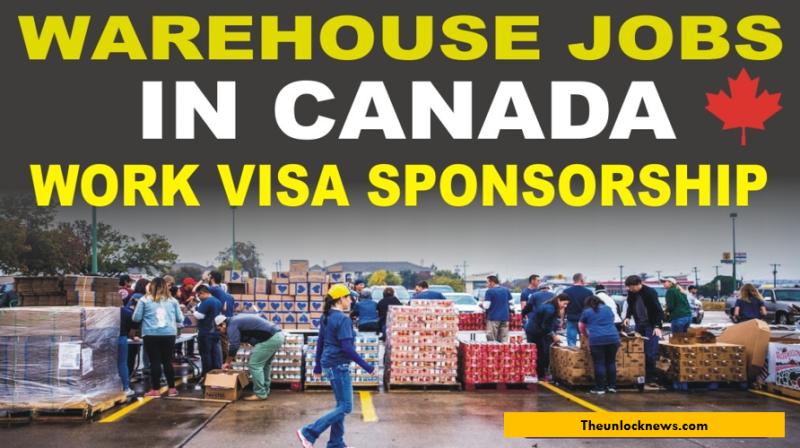Canada’s booming construction and real estate sectors have created a robust demand for skilled tradespeople, including plumbers. With numerous opportunities available, foreign plumbers seeking to work in Canada can benefit from visa sponsorship programs that facilitate their relocation. This guide provides a detailed overview of plumber jobs in Canada for foreigners, the visa sponsorship process, and tips for securing employment.
1. Overview of Plumber Jobs in Canada
1.1. Role and Responsibilities
Plumbers in Canada perform a variety of essential tasks related to the installation, repair, and maintenance of piping systems. Key responsibilities include:
- Installation: Installing pipes, fixtures, and appliances for water, gas, and sewage systems.
- Repair: Diagnosing and fixing issues such as leaks, blockages, and system malfunctions.
- Maintenance: Conducting regular inspections and preventative maintenance to ensure system efficiency.
- Code Compliance: Ensuring all work adheres to local building codes and safety regulations.
- Customer Service: Interacting with clients to assess needs, provide estimates, and ensure satisfaction.
1.2. Demand and Opportunities
- High Demand: The ongoing expansion in construction and housing development has increased the need for skilled plumbers across Canada.
- Varied Opportunities: Positions are available in residential, commercial, and industrial settings, offering a range of work environments and career paths.
2. Visa Sponsorship for Plumbers
2.1. Understanding Visa Sponsorship
Visa sponsorship allows foreign nationals to work in Canada by providing the necessary work authorization. Employers can sponsor workers through specific immigration programs and work permit categories.
2.2. Types of Work Permits
- Employer-Specific Work Permit
- Description: Allows you to work for a specific employer in Canada.
- Requirements: Typically requires a job offer from a Canadian employer and, in some cases, a Labour Market Impact Assessment (LMIA).
- Temporary Foreign Worker Program (TFWP)
- Description: Allows employers to hire foreign workers for temporary positions.
- Process: Requires an LMIA to prove that no Canadian citizens or permanent residents are available for the job.
- Eligibility: Foreign workers must have a job offer and meet specific criteria.
- International Mobility Program (IMP)
- Description: Allows employers to hire foreign workers without requiring an LMIA.
- Categories: Includes international agreements, intra-company transferees, and specific programs like the Canada-United States-Mexico Agreement (CUSMA).
- Eligibility: Depends on the category under which the application is made.
3. Finding Plumber Jobs with Visa Sponsorship
3.1. Job Search Strategies
- Online Job Boards
- Sites: Websites like Indeed, Monster, Workopolis, and Glassdoor list plumber positions, including those with visa sponsorship options.
- Search Tips: Use keywords like “plumber visa sponsorship” and filter results by location and job type.
- Company Websites
- Direct Applications: Visit the career pages of companies specializing in plumbing services, construction firms, and facilities management.
- Recruitment Agencies
- Specialized Agencies: Contact agencies that focus on skilled trades and international placements. These agencies often have connections with employers willing to provide visa sponsorship.
- Networking
- Industry Contacts: Leverage connections in the plumbing and construction industries through professional associations, job fairs, and social media platforms like LinkedIn.
- Job Fairs and Recruitment Events
- Attending Events: Participate in job fairs and recruitment events focused on the construction and trades sectors. These events may feature employers who are open to sponsoring foreign workers.
4. Application Process
4.1. Preparing Your Application
- Resume and Cover Letter
- Resume: Highlight your plumbing experience, relevant skills, and certifications such as a valid plumbing license.
- Cover Letter: Tailor your cover letter to the specific job and employer, emphasizing your qualifications and interest in working in Canada.
- Document Collection
- Required Documents: Gather documents including your passport, plumbing license, job offer letter, and supporting documents related to your qualifications and experience.
4.2. Applying for a Work Permit
- Employer-Specific Work Permit Application
- Job Offer: Ensure you have a formal job offer from a Canadian employer.
- LMIA: If required, your employer must obtain an LMIA to support your work permit application.
- Application Forms: Complete the Application for a Work Permit Made Outside of Canada (IMM 1295) and submit it along with the required documents.
- Temporary Foreign Worker Program (TFWP)
- LMIA: Your employer will apply for an LMIA and provide you with a copy.
- Work Permit Application: Use the LMIA to apply for your work permit through the IRCC website or at a Canadian visa office.
- International Mobility Program (IMP)
- Application: Apply for a work permit under the IMP if your job falls under one of the specific categories. Ensure you meet the eligibility criteria and submit the necessary forms.
4.3. Biometrics and Medical Exams
- Biometrics: Depending on your nationality, you may need to provide biometric information as part of the application process.
- Medical Exam: A medical examination may be required if you are applying for certain types of work permits or if you have resided in specific countries.
5. Tips for a Successful Application
- Verify Requirements: Ensure you meet all eligibility requirements for the work permit you are applying for, including qualifications, experience, and language proficiency.
- Complete Documentation: Ensure all required documents are complete, accurate, and submitted in a timely manner to avoid delays.
- Follow Up: Regularly check the status of your application and follow up with the relevant authorities if needed.
- Seek Professional Advice: If you have complex circumstances or need assistance, consider consulting with an immigration consultant or lawyer specializing in Canadian immigration.
6. Resources and Support
For Job Seekers
- Immigration, Refugees and Citizenship Canada (IRCC): Provides detailed information on work permits, application procedures, and requirements.
- Plumbing Trade Associations: Organizations like the Plumbing-Heating-Cooling Contractors Association (PHCC) provide resources and networking opportunities for plumbers.
- Job Search Websites: Utilize job boards and recruitment platforms to find job opportunities and application tips.
For Employers
- Employment and Social Development Canada (ESDC): Provides information on the LMIA process and employer-specific work permits.
- Industry Associations: Join associations like the Canadian Institute of Plumbing and Heating (CIPH) for networking and access to recruitment resources.
7. Living and Working in Canada
7.1. Understanding Canadian Work Culture
- Work Environment: Familiarize yourself with Canadian workplace norms, including safety regulations, work hours, and team dynamics.
- Communication: Effective communication and adaptability are crucial for integrating into the Canadian work environment.
7.2. Settling In
- Accommodation: Find suitable housing in the area where you will be working. Consider temporary accommodation options if needed.
- Banking and Finances: Set up a bank account and familiarize yourself with the cost of living in your new location.
- Healthcare: Register for provincial healthcare services, which provide access to medical care.
7.3. Community and Support
- Local Communities: Engage with local communities and support networks for expatriates to ease the transition.
- Professional Associations: Join industry associations or groups related to your occupation for networking and career development.
Conclusion
Plumber jobs in Canada offer an excellent opportunity for skilled foreign workers to advance their careers while enjoying the benefits of living in a diverse and welcoming country. By understanding the visa sponsorship process, preparing thoroughly for job applications, and leveraging available resources, foreign plumbers can successfully navigate their move to Canada and contribute to the country’s thriving construction industry. Whether you are an individual seeking new opportunities or an employer looking to sponsor international talent, Canada’s plumbing sector provides a pathway to a rewarding career and a high quality of life.
Sure Opportunities:
- [HIRING NOW] Fruits Farm Jobs In Canada🇨🇦+Visa Sponsorship – No Experience...
- [URGENT HIRING! 🇬🇧] Care Assistant Jobs with Visa Sponsorship – APPLY NOW
- These Canadian Companies Will Offer You Jobs + Visa Sponsorships – LINKS HERE
- UK Tier 2 Visa Sponsored Jobs Available For Foreign Workers | Quick Hiring
- If You Want To Relocate To Canada🇨🇦, Get Any Of These Jobs Now – APPLY HERE
- Move To Australia🇦🇺: Visa Sponsored Jobs Available HERE – Apply Now
- DON’T MISS! 21+ Fully-Funded Scholarships In UK Available For You Now
- [JOBS IN UK🇬🇧] Warehouse Jobs Available With Visa Sponsorship – Interested?
- Study In The UK For FREE? 21+ Fully-Funded Scholarships Available For You





